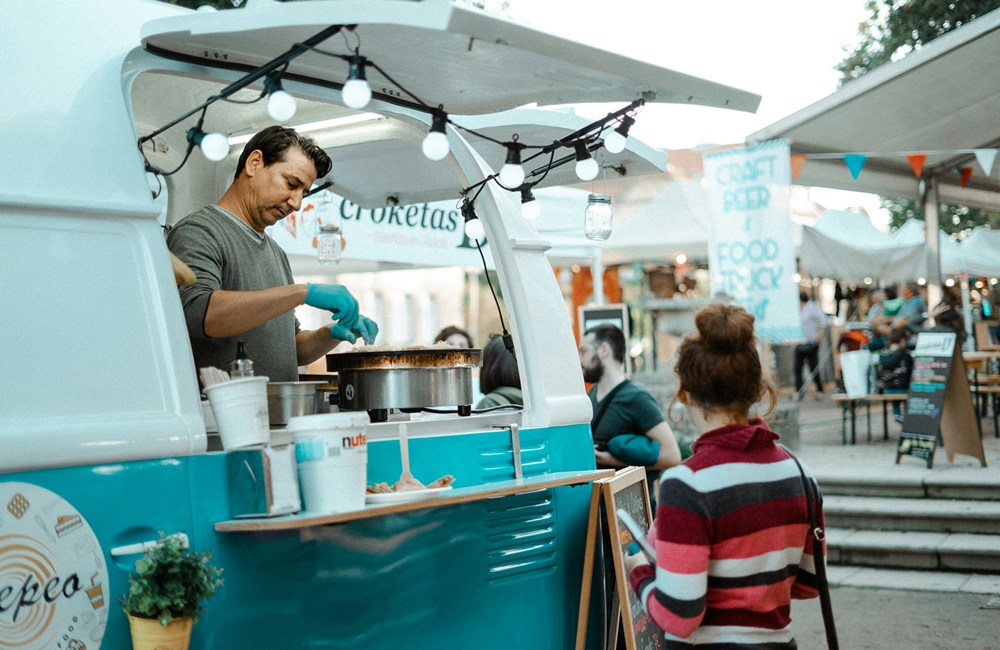No surprise, many foodie entrepreneurs take their restaurant concepts on the road. Food trucks come with their own set of requirements, complications and rewards. Small business experts and food truck owners shared their tips on how to start a mobile kitchen. We’ll tell you 10 things to do before you start cooking, from choosing the best location to investing in technology.
Opening a food truck: Tips and tricks
Be sure that the market hasn’t been oversaturated by trucks with similar prices before launches a food-truck. Consider the following tips.
Invest in an excellent truck.
If you are able to start up your business, build your truck on a more modern, well-maintained car. The mechanical integrity of your truck will determine the success of your business. Give it lots of maintenance and care. You will have to pay for the repairs and lose business when your truck breaks down.
Consider your customers.
Before starting a food trailer, you should consider your target market. You may already know what food you would like to serve. Who will your food appeal? What is your target demographic? The answers to these questions will guide you in making other decisions about your food truck, such as the design and style of your truck, where you should park it, etc.”
Plan your catering as well.
Food trucks are the perfect solution for catering public and private events. Plan ahead to ensure your menu and operating plan is set up for off-premise catering opportunities. Plan ahead to ensure that your menu and operational plan is set up for off premise catering opportunities.
Experience the industry.
Get experience in the food truck industry before starting one. My husband and I both worked in restaurants prior to starting our food truck, and we learned that the food truck business is a unique beast. In a restaurant a customer may wait up to 15 minutes for their dish, but if you run a food truck your team must be trained to deliver dishes in under 5 minutes. Customers expect fast service.
Consider technology.
Consider the technology that you will need to run your business successfully. Logistically, running a mobile [business] is very different than [running a] brick and mortar [operation]. A POS system that is flexible and mobile enough to be used inside or outside your food truck would be ideal. It must also be reliable. You need to be able to use offline functionality if Wi-Fi is down at a busy moment.
Ensure you have all of your permits.
Navigating the rules and regulations to operate a food trailer can be difficult. Research your city’s licensing and permitting process in advance, as it can take several months. Permits can differ dramatically between cities, counties and states. Make sure to know the impact of different locations on your business plan.
Test your idea.
Once [entrepreneurs] decide which route [they want to take] [with] [their] food, they must know their customer segment very well: What they will pay and when; branding; what to spend on the truck. This is all dependent on what they decide to do. If you have cheap branding, but good food, then [you] may be able to get away with being an inexpensive lunch truck. But really nice branding, and a well-designed truck, will be important for one-time clients. It is impossible to predict how people will react to a new concept. However, market research, and the testing of your food by friends, foodies, experts in the industry, etc. can help you evaluate a new concept.
Get Social
I believe that the most important thing a person should consider before opening a mobile food business is how they will promote it using social media. It is important to understand social media and the best ways to promote a food truck. You can do this in many ways, including Instagram where you upload photos of food and locations, Twitter, where you tweet locations with a hashtag to make it easy to find, and Facebook so that people know how to get the latest information. It would be creative to create a mailing list to keep in touch with customers, as long as it was only sent out once a week and contained a list with the locations.
Select the best locations.
Location, location, and location are the three real estate rules that apply to mobile food services. You won’t be successful if there’s not a critical number of people in the area of your food truck. It’s still important to set a schedule for your truck so people know when they can expect you. You may have some casual customers, but many people plan their meals in advance. They want to know that their vendor will be open.
Be sure to be prepared.
The old saying ‘To thine self be true’ could not be more relevant when you start a food trailer. Ask yourself first if you’re ready to make this commitment. I work nonstop from 6 am to 11 pm every day. The food industry is a constant flurry.
Open your food truck
These steps will help you get started with a food-truck business. Before you launch your food truck, there are many boxes to tick. From purchasing the right truck to getting the permits required. You’ll be better equipped to provide the best service possible and overcome common challenges once you have a solid foundation. Do everything you can to build a strong relationship with the local community. They will be a vital part of your success and growth.
